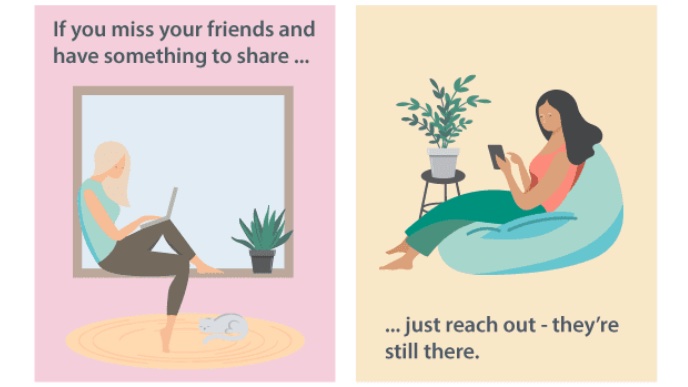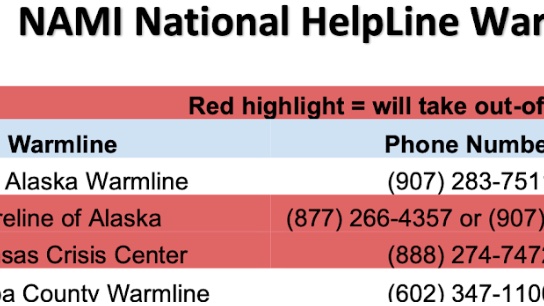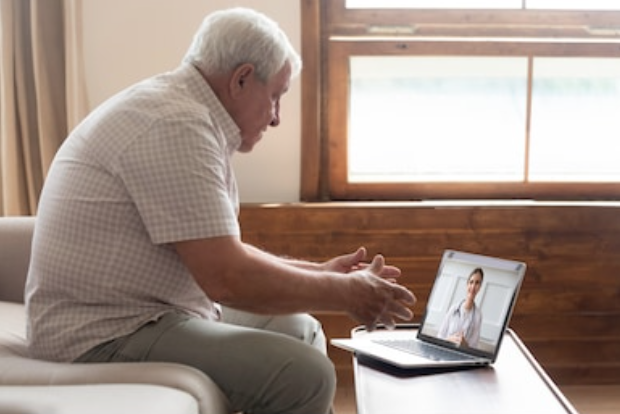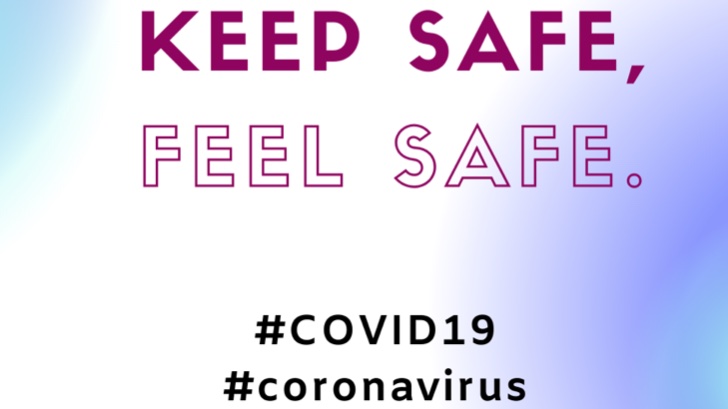1/
Mental health is more important than ever during a pandemic. As healthcare providers, we are uniquely equipped to help our patients navigate this difficult time. Here& #39;s the scoop...
#CovidClassroomUMN #COVID19 #mentalhealth #MentalHealthAwareness #tweetorial
Mental health is more important than ever during a pandemic. As healthcare providers, we are uniquely equipped to help our patients navigate this difficult time. Here& #39;s the scoop...
#CovidClassroomUMN #COVID19 #mentalhealth #MentalHealthAwareness #tweetorial
2/
Many people are experiencing fear, panic, and anxiety about becoming ill due to Sars-CoV-2. Those who have already been infected are at high risk for stigmatization.
Many people are experiencing fear, panic, and anxiety about becoming ill due to Sars-CoV-2. Those who have already been infected are at high risk for stigmatization.
3/
Additionally, 90% of Americans are now living under stay-at-home orders. This social isolation increases the risk for depression, anxiety, and trauma-related mental illness.
https://www.businessinsider.com/us-map-stay-at-home-orders-lockdowns-2020-3">https://www.businessinsider.com/us-map-st...
Additionally, 90% of Americans are now living under stay-at-home orders. This social isolation increases the risk for depression, anxiety, and trauma-related mental illness.
https://www.businessinsider.com/us-map-stay-at-home-orders-lockdowns-2020-3">https://www.businessinsider.com/us-map-st...
4/
Other new challenges also cause trauma: job loss, financial struggle, childcare hardships, difficulties acquiring basic necessities, and the illness and death of loved ones.
Other new challenges also cause trauma: job loss, financial struggle, childcare hardships, difficulties acquiring basic necessities, and the illness and death of loved ones.
5/
The good news? As healthcare providers, we can help! Looking for signs of stress and mental illness in every patient you care for is now more important than ever.
The good news? As healthcare providers, we can help! Looking for signs of stress and mental illness in every patient you care for is now more important than ever.
6/
Remind patients who are feeling alone that physical isolation ≠ social isolation! Connecting with others in safe ways is a vital part of maintaining resilience and wellbeing.
Remind patients who are feeling alone that physical isolation ≠ social isolation! Connecting with others in safe ways is a vital part of maintaining resilience and wellbeing.
7/
Providing a list of anonymous emotional support helplines may be a vital resource to patients who need to talk about challenging feelings, stressful situations, or concerns about hurting themselves or others.
https://www.nami.org/NAMI/media/NAMI-Media/BlogImageArchive/2020/NAMI-National-HelpLine-WarmLine-Directory-3-11-20.pdf">https://www.nami.org/NAMI/medi...
Providing a list of anonymous emotional support helplines may be a vital resource to patients who need to talk about challenging feelings, stressful situations, or concerns about hurting themselves or others.
https://www.nami.org/NAMI/media/NAMI-Media/BlogImageArchive/2020/NAMI-National-HelpLine-WarmLine-Directory-3-11-20.pdf">https://www.nami.org/NAMI/medi...
8/
Ask about your patients& #39; ability to meet basic needs. Are they concerned about money? Are they struggling to find childcare? Are they fearful about finding or running out of basic necessities?
Ask about your patients& #39; ability to meet basic needs. Are they concerned about money? Are they struggling to find childcare? Are they fearful about finding or running out of basic necessities?
9/
Share potential resources with patients who may need help meeting basic needs. This is critical to managing anxiety and fear during a pandemic.
https://www.thelancet.com/journals/lancet/article/PIIS0140-6736(20)30460-8/fulltext">https://www.thelancet.com/journals/...
Share potential resources with patients who may need help meeting basic needs. This is critical to managing anxiety and fear during a pandemic.
https://www.thelancet.com/journals/lancet/article/PIIS0140-6736(20)30460-8/fulltext">https://www.thelancet.com/journals/...
10/
Helpful resources can include ways to obtain secure housing...
https://www.homelessshelterdirectory.org"> https://www.homelessshelterdirectory.org
Helpful resources can include ways to obtain secure housing...
https://www.homelessshelterdirectory.org"> https://www.homelessshelterdirectory.org
11/
...food...
https://www.fns.usda.gov/snap/supplemental-nutrition-assistance-program">https://www.fns.usda.gov/snap/supp...
...food...
https://www.fns.usda.gov/snap/supplemental-nutrition-assistance-program">https://www.fns.usda.gov/snap/supp...
12/
...and financial help for medical care.
https://www.medicaid.gov/medicaid/index.html">https://www.medicaid.gov/medicaid/...
...and financial help for medical care.
https://www.medicaid.gov/medicaid/index.html">https://www.medicaid.gov/medicaid/...
13/
Connecting patients who need access to psychiatric services or mental health counseling to resources for telehealth care is essential. Mental health care is not elective and should not be delayed!
Connecting patients who need access to psychiatric services or mental health counseling to resources for telehealth care is essential. Mental health care is not elective and should not be delayed!
14/
Everyone can benefit from having healthy coping strategies during this time. Remind patients of options for self-care and stress management that can be easily used even within shelter-in-place restrictions.
Everyone can benefit from having healthy coping strategies during this time. Remind patients of options for self-care and stress management that can be easily used even within shelter-in-place restrictions.
15/
Patients may benefit from information on resilience training...
https://www.apa.org/topics/resilience">https://www.apa.org/topics/re...
Patients may benefit from information on resilience training...
https://www.apa.org/topics/resilience">https://www.apa.org/topics/re...
16/
...and coping strategies specific to our current COVID-19 pandemic.
https://www.health.harvard.edu/diseases-and-conditions/coping-with-coronavirus">https://www.health.harvard.edu/diseases-...
...and coping strategies specific to our current COVID-19 pandemic.
https://www.health.harvard.edu/diseases-and-conditions/coping-with-coronavirus">https://www.health.harvard.edu/diseases-...

 Read on Twitter
Read on Twitter













